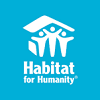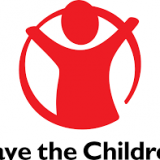Save the Children seeks to commission a gender analysis that will address targeted knowledge gaps in current literature and programme approaches in order to strengthen existing programming for children affected by armed conflict noting that much of the understanding and assessment of the effects of armed conflict on children has been historically gender-blind.
The gender analysis will seek to guide implementation, reporting and evaluation activities of the Programme to enable systematic integration of gender perspectives while ensuring the inclusion of prevention and mitigation mechanisms to potential negative effects such as re-traumatisation of victims of armed conflict. It is thus anticipated that analysis will ensure that programme activities will be informed by gender-sensitive objectives, results and indicators through the use of sex and age disaggregated data to facilitate monitoring and post-evaluation. This serves to ensure that the programme is in a position to influence outcomes aimed at achieving inclusion and that beneficiaries are not placed at risk by the proposed programme activities.
It will also be necessary to analyse whether the Programme is designed in such a way that it prevents the exclusion of relevant gender and age categories particularly with regard to the need for ensuring the Programme proactively includes girls’ voices and that girls and boys engaged by the Programme are able to influence decisions and processes of relevant bodies as envisioned in the Programme objectives. To this end, the analysis should identify existing mechanisms or Programmes that can be strengthened and propose innovative approaches, which if implemented, should result in more effective protection of boys and girls as well as interventions that address gender-specific protection risks.
The analysis should be especially cognisant of gender and its intersectionality with age, sex, ethnicity, religion, disability and the likely differences in experiences of boys and girls, vulnerabilities specific to boys and girls as perpetuated by cultural gender norms, and the risks and needs of younger girls, adolescents and youth.
At a minimum, the analysis should meet the following criteria:
* Use key recent statistics on the situation of women and girls, men and boys – which will also provide the baseline for future measurement (including relevant statistics that reflect the Protecting Children in Conflict (PCIC) thematic or concentration areas) and provide an interpretation including a nuanced understanding of gendered dimensions of conflict. This should be linked to the report, Stop the War on Children: Gender Matters and its implication to the project, Protecting Children Affected by Armed Conflict in Sub-Saharan Africa;
* Key barriers to achieving gender equality (including social norms, legislative, institutional capacity, political will etc.) focusing on those areas that are of interest to the activities of PCIC;
* Contributions that could be made by the programme outcomes to the achievement of the programme purpose, and the way in which assumptions made could affect programme achievements. This aspect of the evaluation will also include a specific assessment of the benefits possibly accruing to particular stakeholders and target groups;
* A mapping of actors with the mandate and capacity to act for gender equality in situations of armed conflict in Sub-Saharan Africa (NGOs, donors, International Organisations, line ministries, gender equality national machineries, etc.);
* A mapping of knowledge / information gaps (e.g. sex-age disaggregated statistical information);
* Clear assessment of where Save the Children and its key stakeholders including the African Union, Regional Economic Communities/Regional Economic Mechanisms (RECs/RMs), Training Centres of Excellence, and Troop and Police Contributing Countries can add value for achieving programme objectives on gender equality;
* A number of clear tangible suggestions for the inclusion of gender in the areas of intervention (e.g. thematic area, engagements with stakeholders).
Experience and Qualifications
This consultancy is open to both individuals and consultancy firms who meet the following criteria:
* Advanced University degree in Social Sciences, Development Studies, Law or related area;
* At least 5 years’ relevant professional experience working on similar assignments;
* Prior research experience on the situation of children affected by armed conflict in Africa;
* Familiarity with child rights programming;
* Demonstrate experience of gender research. Research conducted in the field of gender would be an advantage;
* Demonstrate experience in applied research, especially literature reviews;
* Demonstrate experience in Programme reviews;
* Demonstrate experience in capacity assessment and development;
* Demonstrate strong working relationship with relevant stakeholders in respective countries;
* Demonstrate analytical and conceptual ability, good communication and facilitation skills;
* Demonstrate strong report writing skills and be able to share examples of previous work;
* Demonstrate a track record of delivering high quality written outputs on time in a consultancy environment;
* Demonstrate ability to work independently and deliver on time;
* Fluency in English is a must, French an asset.
The Organisation
We employ approximately 25,000 people across the globe and work on the ground in over 100 countries to help children affected by crises, or those that need better healthcare, education and child protection. We also campaign and advocate at the highest levels to realise the right of children and to ensure their voices are heard.
We are working towards three breakthroughs in how the world treats children by 2030:
* No child dies from preventable causes before their 5th birthday
* All children learn from a quality basic education and that,
* Violence against children is no longer tolerated
We know that great people make a great organization, and that our employees play a crucial role in helping us achieve our ambitions for children. We value our people and offer a meaningful and rewarding career, along with a collaborative and inclusive environment where ambition, creativity, and integrity are highly valued.
Application Information:
Applications should consist of:
* Cover letter;
* Short proposal, detailing proposed methodology, including illustrative budget (max 4 pages);
* Examples of similar work already conducted.
Interested applicants are requested to send their applications
A copy of the full role profile can be found at careers
We need to keep children safe so our selection process, which includes rigorous background checks, reflects our commitment to the protection of children from abuse.
All employees are expected to carry out their duties in accordance with our global anti-harassment policy.
Disclaimer:
Save the Children International does not charge any kind of fee at whichever stage of the recruitment process and does not act through recruitment agents
More Information
- Job City Nairobi





